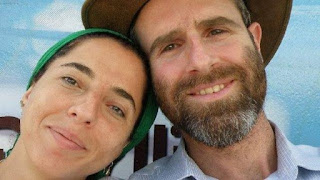
In Israel there is a large number of Filipino women migrating from their homeland in order to receive better wages by working as caregivers for the elders. Filipinos contribute to Israel their services as well mannered and enthusiastic workers who develop close relationships with their employers/authority.The caregivers monitor their patients, assist with basic needs and give companionship.There are cases of Filipino women converting to Judaism in order to marry their Israeli Jewish husbands.Filipinos bring diversity and an unusual demographic to the Reform congregations. Private agencies profit from Filipino workers that fee them in order to link them to their employers in Israel. Due to the large numbers of Filipino caregivers (primarily women) migrating to Israel they have been able to develop a close relationship within the small community of workers that often share the same lifestyle.They contribute distinctive cultural network creating their own church congregations, shops and food within Israel. Even with their significant contribution into the Israeli society they are deprived of bringing or raising their families in Israel. Migrant Filipinos are given the option of keeping their legal status or keeping their own children. Human rights organizations refer to Israel’s inhumane laws toward migrant workers as the “Slavery Law” because it restricts them from changing their employers more than three times. Migrant children can face the consequences of being deported or imprisoned if their Israeli legal status is denied. Filipinos have a difficult time trying to get legalized in Israel because of Israel’s “demographic threat” that focuses on maintaining their Jewish state.

Filipino caregivers usually live in with their employer to provide strength and support through out the work day and often take the responsibility of the household duties. These workers face many obstacles that arise when being a caregiver like the lack of privacy when living in their employers house, the caregivers needs are often unnoticed, and a constant challenge with working with a physically disabled elder. Employers are aware of the financial necessity of their caregiver at oftentimes bargaining prices, demanding more services, and exploiting their workers. Legal advocates in Israel demand for an improvement in migrant human right laws. Maris Delusong in “Family life forbidden for migrant workers in Israel” shares her account on being a caregiver in Israel while providing for her family in the Philippines which creates a stressful situation for her marriage and herself being separated from her family. Delusong receives a better salary in Israel than she will receive in the Philippines and is supporting her family but is not able to bring her family to Israel. Any employer that goes to Israel with a working visa is limited on the opportunity of having children in the country because they will not be able to stay due to their strict legalization laws. Due to the inadequate support for the rights of these migrant workers these laws continue splitting families. 
Filipino women are also contributing to the Reform movement by being equally as involved as their Jewish husbands. These women light the candles for Sabbath every Friday night, learn traditional dishes, and bring an unusual group to their congregation. Moshe and Rina
are regular couples that attend a Tel Aviv synagogue and share their story on how most of the time the men return to Judaism because of their wives interest in the religion. The Filipina wives organize Shabbat dinner with other wives and decide who brings the entrees every week. Rabbi Gilad Kariv, executive director of the Israel Movement for Reform and Progressive Judaism claims that their congregation becomes more “interesting” with their Jewish’s men choice of wives. He also expresses about the importance of being accepting of anyone who wants to convert which is different from an Orthodox’s perspectives. The Chief Rabbinate does not consider these converts as real Jews so they must marry outside of the country to legitimize their marriage. They are also not entitled to the Law of Return since the Chief Rabbinate is suspicious that they are only interested in gaining citizenship or financial benefits. The Filipinas often practice the high holidays and live a religious life while reintroducing their husbands to their own religion.







